The Melvins have been dishing out their sludgy heavier-than-Black-Sabbath sounds for three and a half decades, and show no signs of compromising or slowing down. Their latest album is Pinkus Abortion Technician, which has the Melvins core – singer/guitarist Buzz Osborne and drummer Dale Crover – joined by Redd Kross bassist Steve McDonald and Butthole Surfers bassist Jeff Pinkus.
The Melvins are assured at least a footnote in rock ‘n’ roll history because of their strong connections to Kurt Cobain, who counted them amongst his favorites. Crover even played with Cobain before Nirvana existed, and on Nirvana’s 1988 10-song demo. Cobain co-produced The Melvins’ 1993 major-label debut Houdini.
Or, alternatively, Kurt Cobain is a footnote to The Melvins’ story. Although never really rising above cult band status, The Melvins have now released over 20 albums, and continue to wow audiences with their powerful music and quirky choices of cover songs.
This interview with Melvins drummer Dale Crover was for a preview article for noozhawk.com for the Melvins concert at Velvet Jones in Santa Barbara on 1/17/19. It was done by phone on 12/21/18. (Photo credit: O)
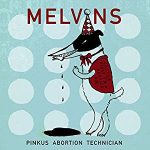
Jeff Moehlis: How do you view the new album, Pinkus Abortion Technician, in relation to the rest of The Melvins catalog?
Dale Crover: Well, it’s definitely different because this was more of a collaboration between Jeff Pinkus and Steve McDonald. Those guys did the majority of the songwriting. It’s probably the first Melvins record where Buzz wasn’t the guy that wrote almost everything [laughs]. And then, also the fact that we have two really great bass players playing on this album. Both of those guys are unique in their own individual self [laughs]. They’re both characters. Definitely, I think that shines through.
JM: Did it just happen naturally that you ended up with two bass players in the band?
DC: Pretty much. I mean, we had already had plans to do some recording with Pinkus, because we’d done some touring with him in the past and there were some songs that we were doing live that we decided that we should probably record – the Butthole Surfer songs, especially the one that was a mix of the James Gang version of “Stop” and then “Moving to Florida”. For whatever reason we decided that that would be a really good combination of two songs [laughs]. It works. I have no idea where that came from.
We were in the middle of recording the previous record with Steve, the A Walk with Love & Death record, when Jeff came to town. So we’d already been recording and doing a bunch of other stuff, and then when Jeff got there we were thinking, “Why don’t you guys just both play together? That’d be kind of cool.” And right away we were like, “This will work. This will be really cool.” And certainly because both their tones are different. You know, I think if they were the same type of bass player it’d be OK, but you probably wouldn’t notice. I think you can. I think you can tell that there are two very different things going on.
But yeah, it was pretty easy, and all of a sudden what was originally going to be an EP of three or four songs turned into a full-length record. It was kind of cool. Mostly unplanned, but we knew that something good would come out of whatever we did with those guys.
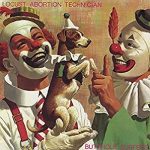
JM: Of course Jeff comes from The Butthole Surfers, and Steve comes from Redd Kross. Were you a fan of those bands back in the day?
DC: Absolutely. I saw both of them play in Tacoma at this place called the Crescent Ballroom, and both those shows were really big shows. People in the Northwest were certainly fans of both bands. I actually now play in Redd Kross – it’s all become incestuous. Steve and I play in Redd Kross, Melvins, Off!, and then also he plays in my solo band. We just played in the Northwest, and people really liked Redd Kross a lot.
JM: I saw the Redd Kross and Dale Crover Band show in Ventura a couple weeks ago, and really enjoyed it.
DC: We had a good time at that show. It was the first time I’d ever played Ventura.
JM: It is fun for you to have these creative outlets outside of The Melvins?
DC: Totally. It’s great [laughs]. I like doing it all, I guess. I’m a working musician, and I don’t just play in one band. I’m busy all year round doing various musical things. I have to – gotta make money for a living [laughs].
The solo band thing is new. I put out a solo record about a year and a half ago, and after I did that I was like, “Shit, I should be a band together and fucking play this stuff.”
I used to play in a band when I lived in San Francisco with some friends of mine – we had a band called Altamont. We put out a bunch of records. I was the frontman in that band, playing guitar and singing. I miss it. I can’t play with those guys too much because two of them live in San Francisco and have pretty much straight jobs, so getting together to practice is practically impossible.
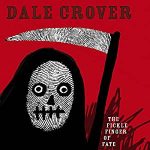
So that’s why I started the solo band. Besides having the record out, I thought, “This’ll be fun to do.” I think I’ve got some people in the band who play really well – obviously Steve… Steve’s really great in any band [laughs]. He’s an amazing bass player. He really makes it sound good. And Toshi [Kasai], who has been the long-time Melvins engineer, almost 20 years now, who also plays in Altamont whenever we do shows. He’s been in the band for the last part of our existence. And then Mindee [Jorgensen] on drums – she’s great.
JM: Back to the new Melvins album, what inspired the cover of “I Want to Hold Your Hand”?
DC: That’s one that’s been in our live set on and off for a while now. We even played it with the Big Business guys. Our version is a cover of a cover, almost like the cover of the James Gang song – a cover of a cover. Our cover of “I Want to Hold Your Hand” is our take on The Moving Sidewalks’ version of the song. I don’t know if you know who those guys are, but that was Billy Gibbons from ZZ Top’s first band back in Texas, a psych rock band that he had before ZZ Top.
JM: Cool – I’ll check that one out. So The Melvins have released most of their albums on smaller labels, but you did have a short period in the ’90’s when you were on Atlantic Records. That’s probably when I first became aware of The Melvins myself. How would you describe your major label experience back then?
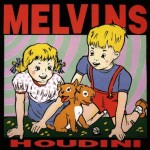
DC: Weird, I guess [laughs]. It was good. I don’t feel like we got chewed up and spit out like a lot of bands kind of did. But we were already established before we signed with Atlantic, and I think we understood why we were getting signed at the time. Any band from Seattle or that had any kind of grunge flavor to them was getting snapped up by major labels. We saw it as an opportunity to find a big deal and get a bunch of money. We never thought it would really happen because we were very aware that our kind of music isn’t popular, it isn’t what’s popular on the Billboard 100. So it was an odd time, and an odd thing, and we thought, “Let’s see if we can make money doing this.” That being said, we sold out but we didn’t sell out by trying to write a bunch of hit songs or change our band in some complete pop direction trying to appease a mass audience [laughs].
JM: I get the feeling that had you still been on an independent label, you would’ve done pretty much the same thing anyway.
DC: Probably, yeah. It was great. We had a bigger budget to make better sounding records, and world class studios. That was great. That part of it was a really fun experience.
JM: Your album Houdini came out during that period, and it’s probably your best-known album because of the Kurt Cobain connection. What are your reflections on that album?
DC: That was a weird one. Certainly that whole time period was weird. It took us a while to make that record. We did it in sections. That probably was the first time when we didn’t have a bunch of songs that we had written before we went to record, so a lot of that stuff was fresh. I still like some of that record, for sure. We still play a bunch of those songs. It was quite an experience. I don’t know if that’s my favorite of the Atlantic records. I’m not sure which one is. I used to say Stag, but I don’t know. I like all three of those.
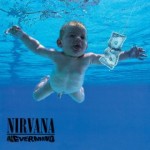
JM: Yeah, they all have a bit of a unique flavor to them. People are still fascinated by Kurt Cobain. How would you describe the Kurt Cobain that you knew?
DC: Well, he had a dark sense of humor, for sure [laughs]. He was always portrayed as being moody and all that stuff, but he was actually quite funny, and a nice guy. When I first met him he was instantly likeable, and he was one of my favorite people who lived where we lived. I felt more of a connection with him than a lot of the other people we grew up with. It was really fun and easy to play music with him. I think had he stuck around, we possibly would’ve done that again, in some form. It’s a big bummer, that story. No happy ending there, unfortunately.
JM: His music has really stuck around.
DC: Yeah, but then I always think what could’ve been. I think for him, that was still in the infantile stages as a musical career. It could’ve blossomed into something absolutely even more amazing. Or maybe not [laughs]. Who’s to say. I’d rather that he was still alive. Too bad, and it’s something that we’ll never get over.
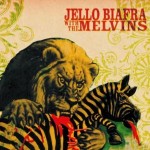
JM: You’ve done a number of cool collaborations over the years – one of my favorites is the stuff you did with Jello Biafra. What was it like working with him?
DC: It was good. We did a lot of sitting around writing songs. Jello kind of initiated us doing the collaboration with him. I don’t think that he really understood our band when he first heard us. I mean, he came to our show one time when we played “Halo of Flies” by Alice Cooper, and he was like, “Oh, I get it now!” He was a big Alice Cooper fan.
I think we jokingly said, “You should get us to do a band where we do Dead Kennedys stuff”, and he was like, “I don’t know about that, but I’d do a collaboration.” “OK.” He started coming down here to Los Angeles from San Francisco, to hear us and write songs with us. He came in with a bunch of songs, and we wrote a bunch of songs for him and with him. He likes to talk so it took a long time. Most of our band practices were spent talking about stuff, but that was great because that was when we got to know each other really well. He’s definitely a strange, eccentric individual, but he’s really really a good guy. Yeah, we did two albums with him. That was really great.
JM: What advice would you give to an aspiring musician?
DC: If you want to be in a band that wants to play shows and get noticed, first you have to do something that’s different from everybody else. There’s a ton of good musicians out there that are as good as you, if not better, and you have to find something that makes you stand out. It’s not all about how good you can play, but how original you can be. It’s a lot of hard work, and some luck, and it’s hard. It’s hard to do. It’s hard to make money doing this. But if you just stick to your guns and think what you do is great – you have to have a little bit of an ego… Find something new. March to the beat of your drum.
JM: What are your plans, musical or otherwise, with The Melvins or otherwise? Are you already thinking about another Melvins album, or do you have other Dale Crover stuff in the works?
DC: Well, obviously next month we’re coming your way on a little California tour in the wintertime. We don’t like to go very far from home in the wintertime because everywhere else is snowy and crappy weather [laughs]. It’s not fun to tour in. So we’re doing that.
We’re doing this thing at The Forum here in L.A. It’s a Chris Cornell tribute show that’s happening. For whatever reason we’re playing. Well, I know why we’re playing, but it’s going to be weird. It’s going to be Metallica, Foo Fighters, and Melvins, and a whole bunch of other bands as well. We were told that there’s a Chris Cornell tribute show being planned, and our name came up in discussions about the show – it was the organizers of the show asking the drummer from Soundgarden which bands he’d want to play, and he said, “Paul McCartney and The Melvins, because Chris loved both The Beatles and The Melvins.” I thought that was pretty cool.
Beyond that, we’ve got plans next year. There will be more recordings, more touring, more more more of everything. We’ll have new record coming out. I definitely want to do more solo stuff and keep it going, because it’s fun doing it [laughs].
JM: The cover of “I Want to Hold Your Hand” made me think if I heard any Beatles influence in The Melvins. Were they an influence?
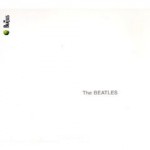
DC: The Beatles are an influential band on everybody. Absolutely, whether they know it or not. So yes – the answer is yes. Just the invention they came up with recording. And songwriting – those guys were fucking great songwriters. I’ve just been listening to the White Album reissue that just came out. Those guys knew what they were doing [laughs]. They were good songwriters. That stuff’s weird, even just the way they recording things. They totally paved the way. So yeah, absolutely.
My advice is don’t trust anybody that says they don’t like The Beatles. Because they’re lying.
JM: I haven’t listened to the box set yet, but am getting it in a few days.
DC: Cool. On one of our drives we listened to all 170 songs on the box set. It was great. We made it all the way through.

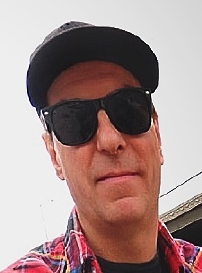
Discussion
No comments for “Interview: Dale Crover”